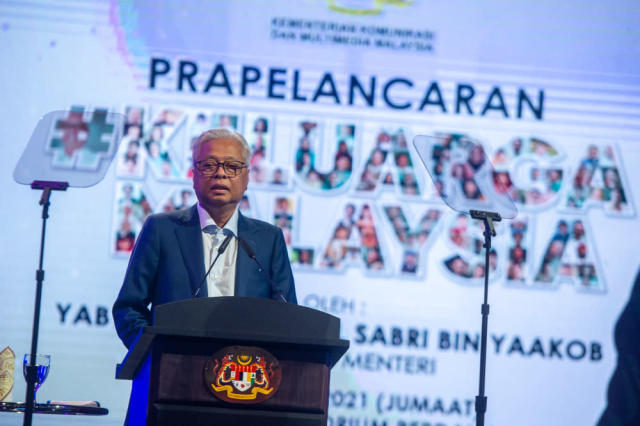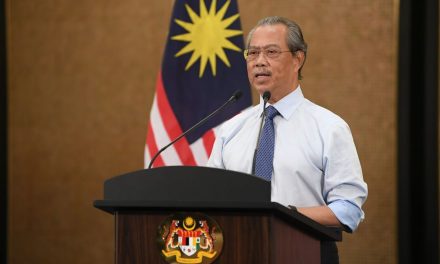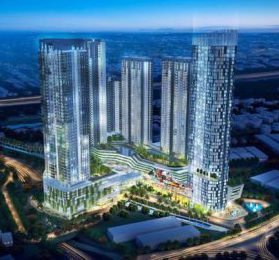PM: National Physical Plan to help Malaysia achieve development goals
A plan and an index to outline development will be put to work to ensure that while Malaysia achieves its prosperous nation goals, the people’s well-being will also be taken care of, says Prime Minister Datuk Seri Ismail Sabri Yaakob. The National Physical Plan outlines spatial development policies that are in line with the 12th Malaysia Plan, which aims for the country to be economically, environmentally and socially resilient. The Malaysia Livability Index is the authorities’ urban planning “checkbox” so that all goals and targets set for a development are met, he added. The National Physical Plan – the fourth such document to date – spells out three core developments, 11 strategic directions and 39 actions to guarantee the people’s well-being. The Livability Index will ensure that issues such as last-mile connectivity, Internet facilities and access to public facilities are looked into in development or urban planning. Housing and Local Government Minister Datuk Seri Reezan Merican Naina Merican said the urban planning agenda must now be “pandemic-resilient”. (The Star)
Sinovac and AZ vaccines approved for booster dose
The Drug Control Authority has given conditional approval for the Covid-19 vaccines from Sinovac and AstraZeneca to be used as booster shots, said the Health Ministry. Health director-general Tan Sri Dr Noor Hisham Abdullah said approval had been given for the two vaccines to be used as booster doses for individuals aged 18 years and above who had received vaccines of the same type (homologous). “The booster vaccine for AstraZeneca will be administered six months from when the second dose was given while for CoronaVac, the booster dose will be administered three to six months after the second dose,” he added. The administration of the booster doses for both vaccine varieties to targeted groups will be outlined by the Covid-19 Immunisation Booster Task Force and announced from time to time. (The Star)
Committee established to monitor 12MP affordable housing implementation
The Ministry of Housing and Local Government (KPKT) has established a committee to coordinate the implementation of 500,000 units of affordable housing for the duration of the 12th Malaysia Plan (12MP). Its minister, Datuk Seri Reezal Merican Naina Merican said the committee would monitor the implementation and provision of housing supply by 15 housing provision agencies, in addition to the ministry, state governments and the private sector. “From the targetted 500,000 affordable housing units under the 12MP, the ministry plans to contribute 20 per cent, which is around 100,000 units,” he said. He said besides the committee, the National Affordable Housing Council (NAHC) is also a platform to monitor the construction of affordable housing in the country. (Malay Mail)
Govt open to proposal to develop idle land to drive Malaysia’s economy
The federal government is open to suggestions to develop idle land to optimise their use and generate economic activities. Deputy Minister of Energy and Natural Resources Datuk Ali Biju said any party, be it government agencies or the private sector, or even individuals can apply to develop idle land through the state government or through the Federal Land Commission Office. “Applications to develop idle land under state governments are welcomed but they are subject to rental and occupancy considerations. State governments are ready to give a lease as this will generate economic activities,” he said. Idle plots of land are categorised as owned land, government land, and reserve land. “Customary and Malay reserve land are also categorised as owned land and their development, whether through rent or lease, is subject to existing laws,” he added. (Malay Mail)
Subang Airport not for sale, transport minister insists
Transport Minister Datuk Seri Wee Ka Siong has insisted that the Subang Airport will not be taken over by private entities. However, he said that the airport handler, Malaysia Airport Holdings Berhad (MAHB) will be allowed to enter operating agreements (OA) with private companies to develop it. Wee said MAHB’s lease to manage and maintain the airport was until 2034, with OA until 2067 and lease agreement for the land. The issue was brought during the budget debate following report that a private company — WCT Holdings Bhd, whose subsidiary Subang SkyPark operates Subang airport on a concession — was seeking to acquire and operate the airport until 2092. The ministry had said that the study on the development of airports and short take-off landing airports in the country was expected to be completed in 2023 in line with the National Transport Policy. (Malay Mail)
China’s real estate woes sap property investment products
Chinese investors are abandoning an age-old attachment to property investment products and seeking returns in equities and other corners of the capital markets, as the authorities crack down on the debt-fuelled property sector. The flow of cash into property investment products issued by trust companies has slumped since September, as embattled property giant China Evergrande Group’s debt woes deepened. Chinese investors have long had a penchant for real estate investments but the money flowing into property investment products has been shrinking in recent years since Beijing started to curtail shadow banking in 2017. At the end of June, trust money that invests in real estate totalled 2.1 trillion yuan ($329.3 billion), down 17% from a year earlier. In contrast, trust products investing in securities such as bonds and stocks jumped 35% to 2.8 trillion yuan, according to the China Trustee Association. According to Citi Securities, China’s quantitative private funds have grown to 1 trillion yuan ($154.6 billion) in recent months. That is almost 10 times their size in 2017. (The Edge)





